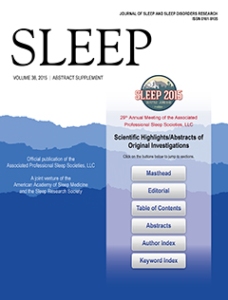 Dr. Terumi Higuchi of the Department of Nephrology, Keiai Hospital, Tokyo Japan, headed a recent study to determine if there was an association between RLS, oxidative stress and inflammation in patients undergoing hemodialysis.
Dr. Terumi Higuchi of the Department of Nephrology, Keiai Hospital, Tokyo Japan, headed a recent study to determine if there was an association between RLS, oxidative stress and inflammation in patients undergoing hemodialysis.
The results of the study were published in the August 2015 edition of the “Sleep Medicine Journal” (Volume 16, Issue 8, Pages 941–948).
The study was called “Association of restless legs syndrome with oxidative stress and inflammation in patients undergoing hemodialysis”
In the HIGHLIGHT section of the study, Dr. Higuchi states that “Restless legs syndrome was associated with oxidative stress and inflammation.”
You can read more details about the study here:
http://www.sleep-journal.com/article/S1389-9457%2815%2900746-7/abstract?cc=y=
